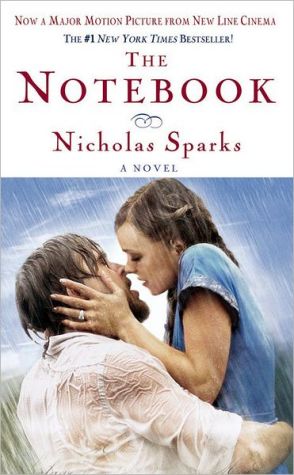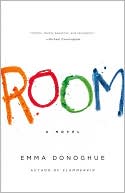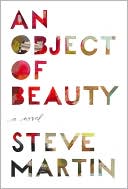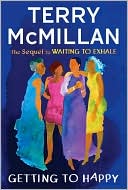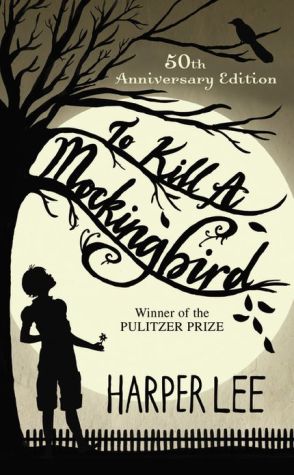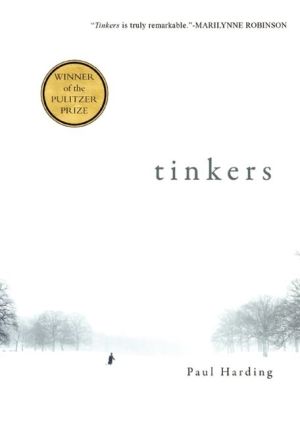The Notebook
Set amid the austere beauty of coastal North Carolina in 1946, The Notebook begins with the story of Noah Calhoun, a rural Southerner returned home from World War II. Noah, 31, is restoring a plantation home to its former glory, and he is haunted by images of the beautiful girl he met 14 years earlier, a girl he loved like no other. Unable to find her, yet unwilling to forget the summer they spent together, Noah is content to live with only memories...until she unexpectedly returns to his...
Search in google:
Every so often a love story so captures our hearts that it becomes more than a story-it becomes an experience to remember forever. The Notebook is such a book. It is a celebration of how passion can be ageless and timeless, a tale that moves us to laughter and tears and makes us believe in true love all over again... At thirty-one, Noah Calhoun, back in coastal North Carolina after World War II, is haunted by images of the girl he lost more than a decade earlier. At twenty-nine, socialite Allie Nelson is about to marry a wealthy lawyer, but she cannot stop thinking about the boy who long ago stole her heart. Thus begins the story of a love so enduring and deep it can turn tragedy into triumph, and may even have the power to create a miracle...Publishers WeeklyIn 1932, two North Carolina teenagers from opposite sides of the tracks fall in love. Spending one idyllic summer together in the small town of New Bern, Noah Calhoun and Allie Nelson do not meet again for 14 years. Noah has returned from WWII to restore the house of his dreams, having inherited a large sum of money. Allie, programmed by family and the "caste system of the South" to marry an ambitious, prosperous man, has become engaged to powerful attorney Lon Hammond. When she reads a newspaper story about Noah's restoration project, she shows up on his porch step, re-entering his life for two days. Will Allie leave Lon for Noah? The book's slim dimensions and clich-ridden prose will make comparisons to The Bridges of Madison County inevitable. What renders Sparks's (Wokini: A Lakota Journey of Happiness and Self-Understanding) sentimental story somewhat distinctive are two chapters, which take place in a nursing home in the '90s, that frame the central story. The first sets the stage for the reading of the eponymous notebook, while the later one takes the characters into the land beyond happily ever after, a future rarely examined in books of this nature. Early on, Noah claims that theirs may be either a tragedy or a love story, depending on the perspective. Ultimately, the judgment is up to readersbe they cynics or romantics. For the latter, this will be a weeper. Literary Guild and Doubleday Book Club main selections.
The Notebook\ \ By Nicholas Sparks \ Warner Books\ Copyright © 1996 Nicholas Sparks\ All right reserved.\ ISBN: 0-446-67609-8 \ \ \ Chapter One\ Miracles \ Who am I? And how, I wonder, will this story end?\ The sun has come up and I am sitting by a window that is foggy with the breath of a life gone by. I'm a sight this morning: two shirts, heavy pants, a scarf wrapped twice around my neck and tucked into a thick sweater knitted by my daughter thirty birthdays ago. The thermostat in my room is set as high as it will go, and a smaller space heater sits directly behind me. It clicks and groans and spews hot air like a fairytale dragon, and still my body shivers with a cold that will never go away, a cold that has been eighty years in the making. Eighty years, I think sometimes, and despite my own acceptance of my age, it still amazes me that I haven't been warm since George Bush was president. I wonder if this is how it is for everyone my age.\ My life? It isn't easy to explain. It has not been the rip-roaring spectacular I fancied it would be, but neither have I burrowed around with the gophers. I suppose it has most resembled a bluechip stock: fairly stable, more ups than downs, and gradually trending upward over time. A good buy, a lucky buy, and I've learned that not everyone can say this about his life. But do not be misled. I am nothing special; of this I am sure. I am a common man with common thoughts, and I've led a common life. There are no monuments dedicated to me and my name will soon be forgotten, but I've loved another with all my heart and soul, and to me, this has always been enough.\ The romantics would call this a love story, the cynics would call it a tragedy. In my mind it's a little bit of both, and no matter how you choose to view it in the end, it does not change the fact that it involves a great deal of my life and the path I've chosen to follow. I have no complaints about my path and the places it has taken me; enough complaints to fill a circus tent about other things, maybe, but the path I've chosen has always been the right one, and I wouldn't have had it any other way.\ Time, unfortunately, doesn't make it easy to stay on course. The path is straight as ever, but now it is strewn with the rocks and gravel that accumulate over a lifetime. Until three years ago it would have been easy to ignore, but it's impossible now. There is a sickness rolling through my body; I'm neither strong nor healthy, and my days are spent like an old party balloon: listless, spongy, and growing softer over time.\ I cough, and through squinted eyes I check my watch. I realize it is time to go. I stand from my seat by the window and shuffle across the room, stopping at the desk to pick up the notebook I have read a hundred times. I do not glance through it. Instead I slip it beneath my arm and continue on my way to the place I must go.\ I walk on tiled floors, white in color and speckled with gray. Like my hair and the hair of most people here, though I'm the only one in the hallway this morning. They are in their rooms, alone except for television, but they, like me, are used to it. A person can get used to anything, if given enough time.\ I hear the muffled sounds of crying in the distance and know exactly who is making those sounds. Then the nurses see me and we smile at each other and exchange greetings. They are my friends and we talk often, but I am sure they wonder about me and the things that I go through every day. I listen as they begin to whisper among themselves as I pass. "There he goes again," I hear, "I hope it turns out well." But they say nothing directly to me about it. I'm sure they think it would hurt me to talk about it so early in the morning, and knowing myself as I do, I think they're probably right.\ A minute later, I reach the room. The door has been propped open for me, as it usually is. There are two others in the room, and they too smile at me as I enter. "Good morning," they say with cheery voices, and I take a moment to ask about the kids and the schools and upcoming vacations. We talk above the crying for a minute or so. They do not seem to notice; they have become numb to it, but then again, so have I.\ Afterward I sit in the chair that has come to be shaped like me. They are finishing up now; her clothes are on, but still she is crying. It will become quieter after they leave, I know. The excitement of the morning always upsets her, and today is no exception. Finally the shade is opened and the nurses walk out. Both of them touch me and smile as they walk by. I wonder what this means.\ I sit for just a second and stare at her, but she doesn't return the look. I understand, for she doesn't know who I am. I'm a stranger to her. Then, turning away, I bow my head and pray silently for the strength I know I will need. I have always been a firm believer in God and the power of prayer, though to be honest, my faith has made for a list of questions I definitely want answered after I'm gone.\ Ready now. On go the glasses, out of my pocket comes a magnifier. I put it on the table for a moment while I open the notebook. It takes two licks on my gnarled finger to get the wellworn cover open to the first page. Then I put the magnifier in place.\ There is always a moment right before I begin to read the story when my mind churns, and I wonder, Will it happen today? I don't know, for I never know beforehand, and deep down it really doesn't matter. It's the possibility that keeps me going, not the guarantee, a sort of wager on my part. And though you may call me a dreamer or fool or any other thing, I believe that anything is possible.\ I realize the odds, and science, are against me. But science is not the total answer; this I know, this I have learned in my lifetime. And that leaves me with the belief that miracles, no matter how inexplicable or unbelievable, are real and can occur without regard to the natural order of things. So once again, just as I do every day, I begin to read the notebook aloud, so that she can hear it, in the hope that the miracle that has come to dominate my life will once again prevail.\ And maybe, just maybe, it will.\ Ghosts\ It was early October 1946, and Noah Calhoun watched the fading sun sink lower from the wraparound porch of his plantation-style home. He liked to sit here in the evenings, especially after working hard all day, and let his thoughts wander without conscious direction. It was how he relaxed, a routine he'd learned from his father.\ He especially liked to look at the trees and their reflections in the river. North Carolina trees are beautiful in deep autumn: greens, yellows, reds, oranges, every shade in between. Their dazzling colors glow with the sun, and for the hundredth time, Noah Calhoun wondered if the original owners of the house had spent their evenings thinking the same things.\ The house was built in 1772, making it one of the oldest, as well as largest, homes in New Bern. Originally it was the main house on a working plantation, and he had bought it right after the war ended and had spent the last eleven months and a small fortune repairing it. The reporter from the Raleigh paper had done an article on it a few weeks ago and said it was one of the finest restorations he'd ever seen. At least the house was. The remaining property was another story, and that was where he'd spent most of the day. The home sat on twelve acres adjacent to Brices Creek, and he'd worked on the wooden fence that lined the other three sides of the property, checking for dry rot or termites, replacing posts when he had to. He still had more work to do on it, especially on the west side, and as he'd put the tools away earlier he'd made a mental note to call and have some more lumber delivered. He'd gone into the house, drunk a glass of sweet tea, then showered. He always showered at the end of the day, the water washing away both dirt and fatigue.\ Afterward he'd combed his hair back, put on some faded jeans and a long-sleeved blue shirt, poured himself another glass of sweet tea, and gone to the porch, where he now sat, where he sat every day at this time.\ He stretched his arms above his head, then out to the sides, rolling his shoulders as he completed the routine. He felt good and clean now, fresh. His muscles were tired and he knew he'd be a little sore tomorrow, but he was pleased that he had accomplished most of what he had wanted to do.\ Noah reached for his guitar, remembering his father as he did so, thinking how much he missed him. He strummed once, adjusted the tension on two strings, then strummed again. This time it sounded about right, and he began to play. Soft music, quiet music. He hummed for a little while at first, then began to sing as night came down around him. He played and sang until the sun was gone and the sky was black.\ It was a little after seven when he quit, and he settled back into his chair and began to rock. By habit, he looked upward and saw Orion and the Big Dipper, Gemini and the Pole Star, twinkling in the autumn sky.\ He started to run the numbers in his head, then stopped. He knew he'd spent almost his entire savings on the house and would have to find a job again soon, but he pushed the thought away and decided to enjoy the remaining months of restoration without worrying about it. It would work out for him, he knew; it always did. Besides, thinking about money usually bored him. Early on, he'd learned to enjoy simple things, things that couldn't be bought, and he had a hard time understanding people who felt otherwise. It was another trait he got from his father.\ Clem, his hound dog, came up to him then and nuzzled his hand before lying down at his feet. "Hey, girl, how're you doing?" he asked as he patted her head, and she whined softly, her soft round eyes peering upward. A car accident had taken her leg, but she still moved well enough and kept him company on quiet nights like these.\ He was thirty-one now, not too old, but old enough to be lonely. He hadn't dated since he'd been back here, hadn't met anyone who remotely interested him. It was his own fault, he knew. There was something that kept a distance between him and any woman who started to get close, something he wasn't sure he could change even if he tried. And sometimes in the moments right before sleep came, he wondered if he was destined to be alone forever.\ The evening passed, staying warm, nice. Noah listened to the crickets and the rustling leaves, thinking that the sound of nature was more real and aroused more emotion than things like cars and planes. Natural things gave back more than they took, and their sounds always brought him back to the way man was supposed to be. There were times during the war, especially after a major engagement, when he had often thought about these simple sounds. "It'll keep you from going crazy," his father had told him the day he'd shipped out. "It's God's music and it'll take you home."\ He finished his tea, went inside, found a book, then turned on the porch light on his way back out. After sitting down again, he looked at the book. It was old, the cover was torn, and the pages were stained with mud and water. It was Leaves of Grass by Walt Whitman, and he had carried it with him throughout the war. It had even taken a bullet for him once.\ He rubbed the cover, dusting it off just a little. Then he let the book open randomly and read the words in front of him:\ This is thy hour O Soul, thy free flight into the wordless, Away from books, away from art, the day erased, the lesson done, Thee fully forth emerging, silent, gazing, pondering the themes thou lovest best, Night, sleep, death and the stars.\ He smiled to himself. For some reason Whitman always reminded him of New Bern, and he was glad he'd come back. Though he'd been away for fourteen years, this was home and he knew a lot of people here, most of them from his youth. It wasn't surprising. Like so many southern towns, the people who lived here never changed, they just grew a bit older.\ (Continues...)\ \ \ \ \ Excerpted from The Notebook by Nicholas Sparks Copyright © 1996 by Nicholas Sparks . Excerpted by permission.\ All rights reserved. No part of this excerpt may be reproduced or reprinted without permission in writing from the publisher.\ Excerpts are provided by Dial-A-Book Inc. solely for the personal use of visitors to this web site. \ \
\ Publishers Weekly - Publisher's Weekly\ In 1932, two North Carolina teenagers from opposite sides of the tracks fall in love. Spending one idyllic summer together in the small town of New Bern, Noah Calhoun and Allie Nelson do not meet again for 14 years. Noah has returned from WWII to restore the house of his dreams, having inherited a large sum of money. Allie, programmed by family and the "caste system of the South" to marry an ambitious, prosperous man, has become engaged to powerful attorney Lon Hammond. When she reads a newspaper story about Noah's restoration project, she shows up on his porch step, re-entering his life for two days. Will Allie leave Lon for Noah? The book's slim dimensions and clich-ridden prose will make comparisons to The Bridges of Madison County inevitable. What renders Sparks's (Wokini: A Lakota Journey of Happiness and Self-Understanding) sentimental story somewhat distinctive are two chapters, which take place in a nursing home in the '90s, that frame the central story. The first sets the stage for the reading of the eponymous notebook, while the later one takes the characters into the land beyond happily ever after, a future rarely examined in books of this nature. Early on, Noah claims that theirs may be either a tragedy or a love story, depending on the perspective. Ultimately, the judgment is up to readersbe they cynics or romantics. For the latter, this will be a weeper. Literary Guild and Doubleday Book Club main selections.\ \ \ \ \ Library JournalSparks, who coauthored the self-help parable Wokini (Random, 1994), weighs in with a romantic novel that will receive a substantial marketing push.\ \ \ Joanne WilkinsonWith a huge first printing and a major advertising campaign, Warner is clearly hoping that Sparks' first novel will duplicate the success of Robert James Waller's Bridges of Madison County. Written in the opaque language of a fable, the novel opens in a nursing home as 80-year-old Noah Calhoun, "a common man with common thoughts," reads a love story from a notebook; it is his own story. In 1946, Noah, newly returned from the war, is trying to forget a long-ago summer romance with Allie Nelson, the daughter of a powerful businessman. Allie, soon to be married, feels compelled to track Noah down. One steamed-crab dinner and a canoe ride later, they fall madly in love again. We then learn that Noah, now aged and infirm, is reading his notebook to Allie in an attempt to jog her memory, severely impaired by Alzheimer's disease, and, miraculously, he succeeds, much to the amazement of the hospital staff. There is something suspect about a romantic relationship that reaches its acme when one of the partners is in the throes of dementia, but then, this is well within the confines of the romance genre--love conquers all, even Alzheimer's, leaving the medical experts (and this reviewer) confounded. If you want to read a novel in which the romance is grounded in something real, and the magic is truly magical, read the work of Alice Hoffman. If you want to read an upscale Harlequin romance with great crossover appeal, then read The Notebook.\ \ \ \ \ Kirkus ReviewsSparks's debut is a contender in the Robert Waller book sweeps for most shamelessly sentimental love story, with honorable mention for highest octane schmaltz throughout an extended narrative.\ New Bern is the Carolina town where local boy Noah Calhoun and visitor Allison Nelson fall in love, in 1932, when Noah is 17 and Allie 15 ("as he . . . met those striking emerald eyes, he knew . . . she was the one he could spend the rest of his life looking for but never find again"). Allie's socially prominent mom, however, sees their Romeo-and-Juliet affair differently, intercepting Noah's heartrendingly poetic love-letters, while Allie, sure he doesn't love her, never even sends hers. Love is forever, though, and in 1946 Allie sees a piece in the paper about Noah (he's back home after WW II, still alone, living in a 200-year-old house in the country) and drives down to see him, telling the socially prominent lawyer she's engaged to that she's gone looking for antiques (" `And here it will end, one way or the other,' she whispered"). And together again the lovers come indeed, during a thunderstorm, before a crackling fire, leaving the poetic Noah to reflect that "to him, the evening would be remembered as one of the most special times he had ever had." So, will Allie marry her lawyer? Will Noah live out his life alone, rocking on his porch, paddling up the creek, "playing his guitar for beavers and geese and wild blue herons"? Suffice it to say that love will go on, somehow, for 140 more pages, readers will find out what the title means and may or may not agree with Allie, of Noah: "You are the most forgiving and peaceful man I know. God is with you, He must be, for you are the closest thing to an angel that I've ever met."\ An epic of treacle, an ocean of tears, made possible by a perfect, ideal, unalloyed absence of humor. Destined, positively, for success.\ \ \ \ \ \ From Barnes & NobleThe Notebook is a deeply moving portrait of love itself, the tender moments and the fundamental changes that affect us all. Shining with a beauty that is rarely found in current literature, this book establishes Nicholas Sparks as a classic storyteller with a unique insight into the only emotion that really matters.\ \
